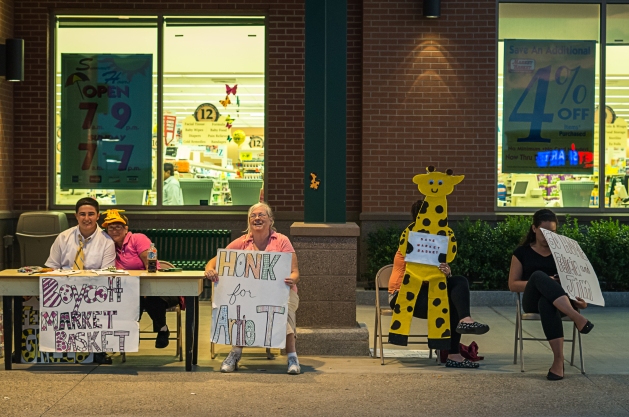The following statement was released Monday by the Massachusetts Freedom of Information Alliance.
The Massachusetts Freedom of Information Alliance, a network of more than 40 groups committed to reforming the state public records law, today commended Gov. Charlie Baker for issuing guidance to improve state executive agencies’ handling of requests for information, but emphasized that significant changes to the law itself are still needed to achieve broad, enforceable access to public information throughout the Commonwealth.
Responding to widespread criticism that the Massachusetts public records law is among the weakest in the country and routinely flouted by public officials, Baker last Thursday issued a memorandum to cabinet secretaries providing guidance on how to “reduce delays and costs that burden accessibility.” The memo directs agencies to designate a records access officer to help streamline requests, to standardize fees for copying and staff time, and to set expectations for agency response time. The guidance applies only to state executive agencies, not municipalities, independent agencies, or other entities subject to the public records law.
MassFOIA commended the governor’s action but simultaneously called for legislative reform.
“We applaud Gov. Baker for providing leadership and direction to improve access to public information,” said Justin Silverman, executive director of the New England First Amendment Coalition. “But even the best-intended administrative guidance is inherently limited. It doesn’t have the force of law and it won’t have any impact on access at the municipal level.”
“The governor deserves credit for taking this step,” said Gavi Wolfe, legislative counsel at the ACLU of Massachusetts, “but we also need legislation to fix the law itself and ensure real accountability. Otherwise, Massachusetts will keep getting failing grades and officials will continue to treat freedom of information as a suggestion instead of a public right.”
Several of the provisions outlined in Baker’s memo may increase timely and affordable access, but they set no firm deadlines for complying with requests or overall limits on the amount of money that agencies can charge to provide information the public has a right to obtain.
“Even under this guidance, agencies can — and in all probability will — continue to charge a fortune for requests that they perceive as complex,” said Robert J. Ambrogi, executive director of the Massachusetts Newspaper Publishers Association. “Time and again we’ve seen Massachusetts agencies demand huge fees when other states turn over the same information for a fraction of the cost. While this guidance is a step in the right direction, it won’t prevent abuses of the law.”
“One of the most important reforms is attorney’s fees for those wrongly denied public records, and that cannot be established by the governor,” said Pam Wilmot, executive director of Common Cause Massachusetts. “That takes legislation. We’re pushing for a vote on a strong comprehensive bill in the legislature in September.” Forty-seven other states provide attorney’s fees to hold officials accountable when they refuse to follow the law.
The state public records law grants the public the right to access information about government operations from the executive branch and municipalities, subject to certain exemptions. MassFOIA contends that the law is weak and needs updating for the digital age, having not been substantially amended since 1973.
In July, the legislature’s Joint Committee on State Administration and Regulatory Oversight gave the nod to a bill supported by MassFOIA, which is now before the House Committee on Ways and Means. Key provisions would update the law to reflect advances in technology, rationalize fees for obtaining public records by having them reflect actual costs, and provide attorneys’ fees when agencies unlawfully block access to public information. It would also help government officials fielding public records requests by allowing them additional time for compliance and the ability to ask for other accommodations in “exceptional circumstances.” Legislative leaders have indicated a desire to vote on public records reform legislation in the fall.
The proposed legislation aims to improve access to information the law already defines as a public record. It would not alter the scope of the public records law or make any changes to existing exemptions, including those for personal privacy, criminal investigations, personnel records and trade secrets. Rather it would modernize outmoded language in the law and strengthen procedures for compliance and enforcement.
Specifically, the legislation would:
- Promote access to records in electronic form.
- Direct agencies to assign a “records access officer” to streamline responses to public records requests.
- Lower costs for requesters and limit charges for redacting documents to withhold information.
- Require attorneys’ fees when access to public records is wrongly denied, creating an incentive for agencies to obey the law.
- Extend the time for compliance from 10 to 15 days.
- Allow record-keepers to obtain more time or the ability to charge special fees when responding to frequent or unusually large requests.







